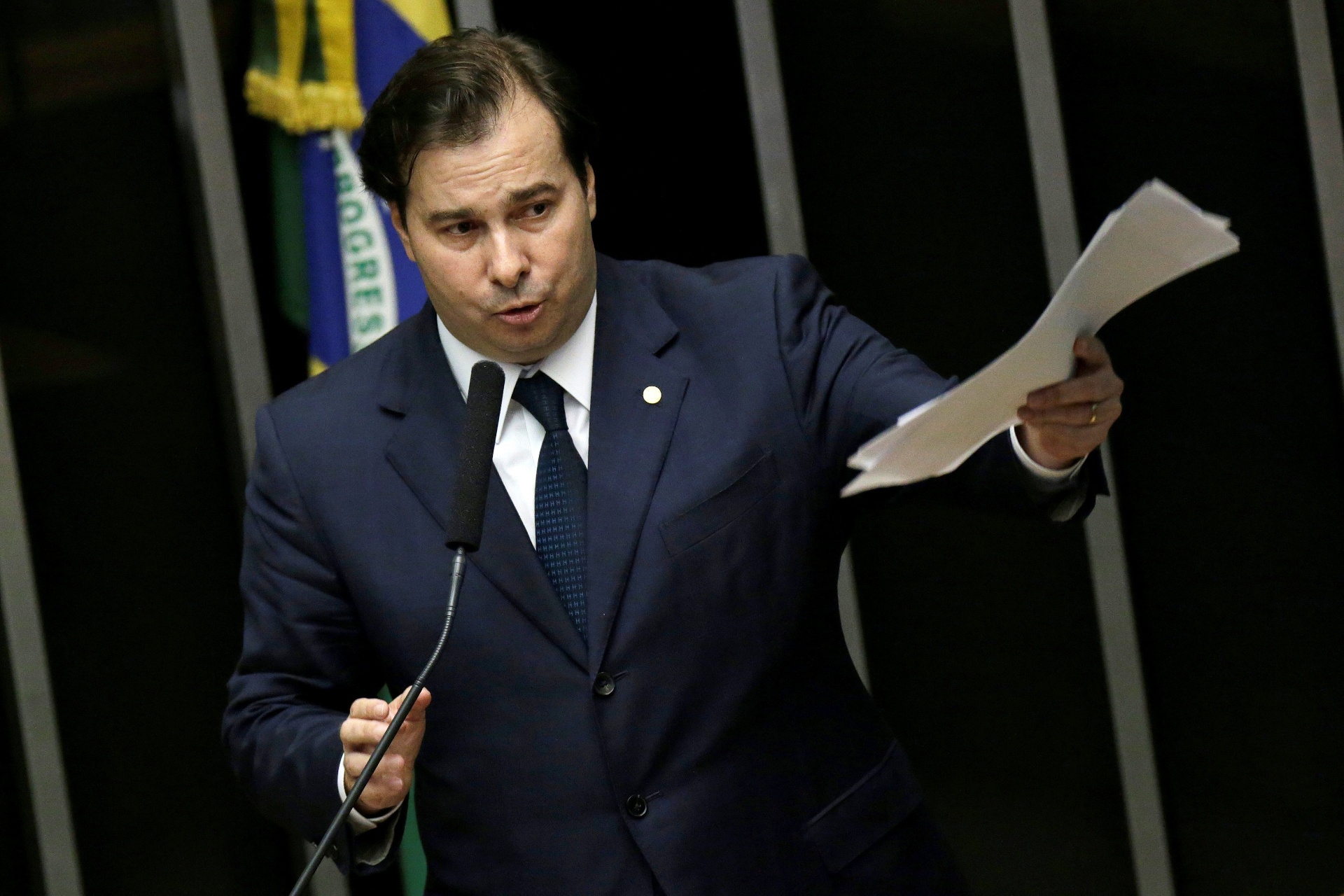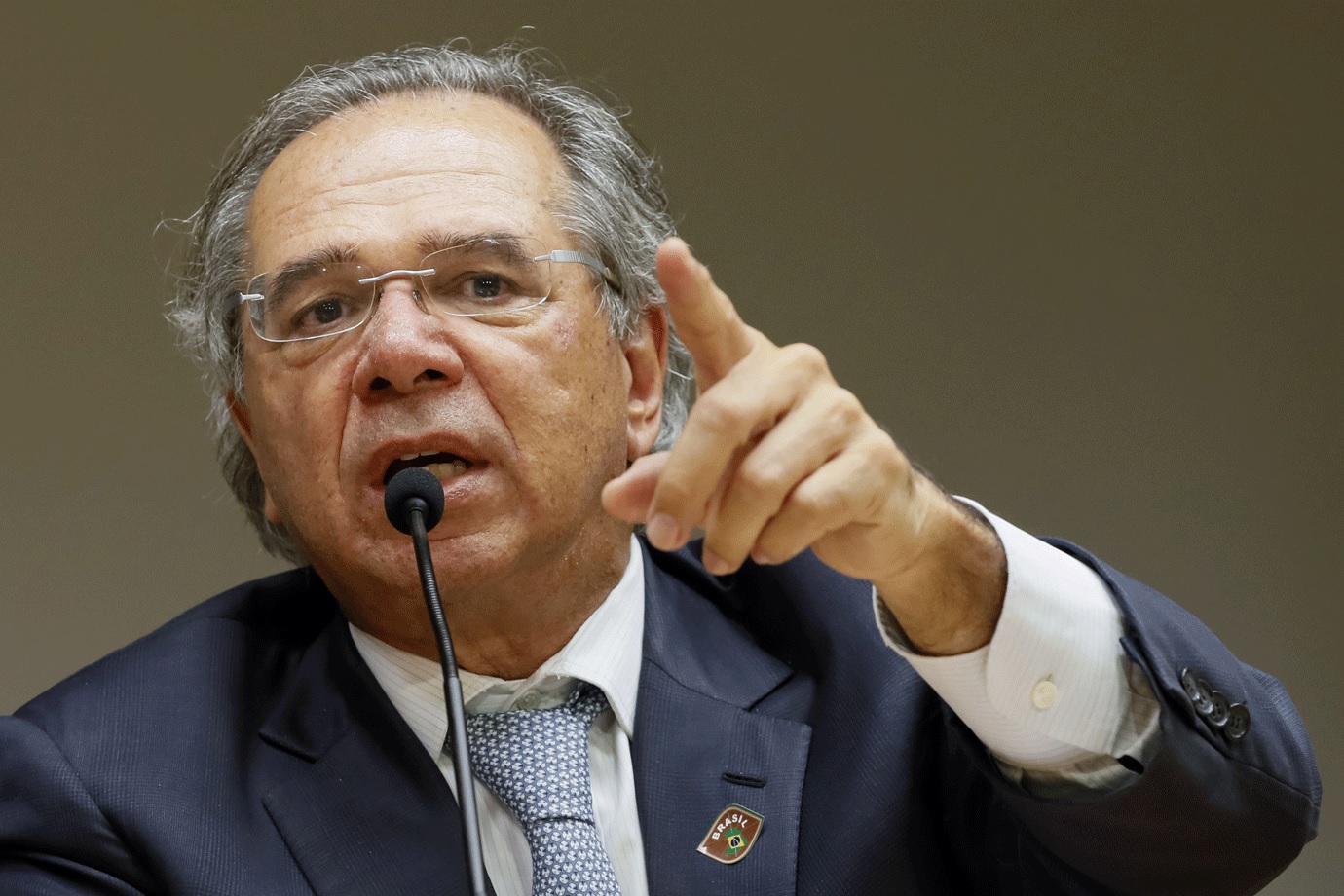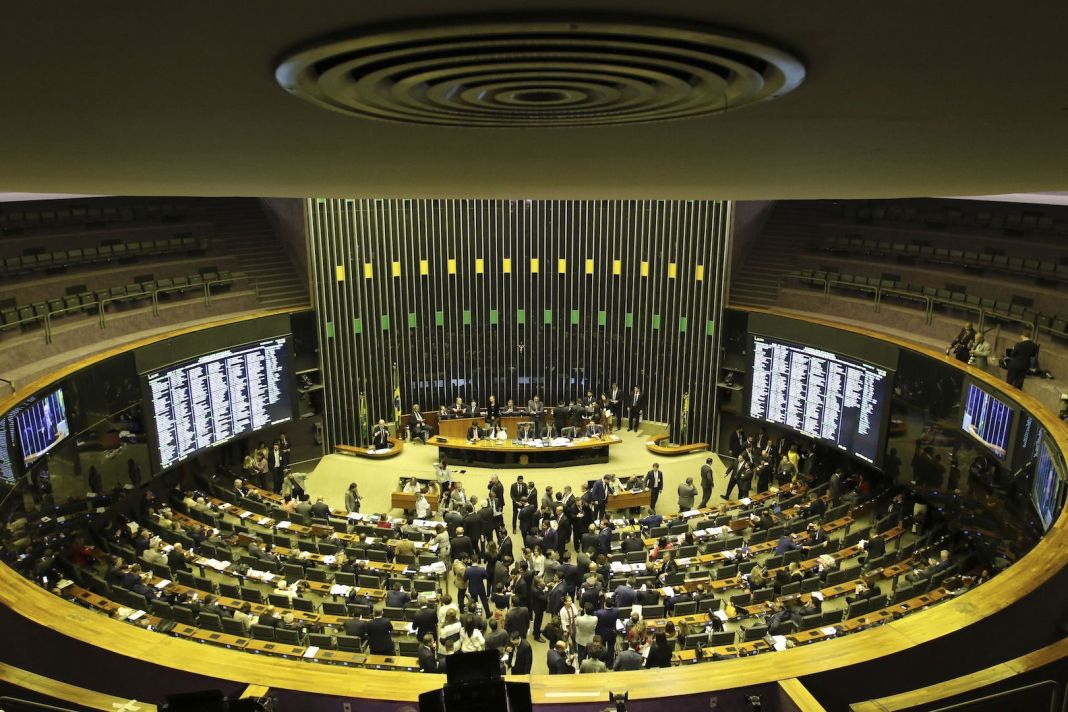RIO DE JANEIRO, BRAZIL – Rodrigo Maia‘s last year at the head of the Chamber’s presidency will be a trial of his role in Brazilian politics, achieved mainly when he managed to push through the Social Welfare reform last year. His clashes with President Jair Bolsonaro also gave him prominence as a counterpoint in national politics. In the current scenario, Bolsonaro’s government is still wavering on the measures it intends to introduce in early 2020. Once again, this gives Congress room to show that it is walking on its own two legs.

The discourses between what the Planalto intends and what the legislators anticipate for the National Congress show what the legislative year, which began on Monday, February 3rd, will be like. While the Legislature wants to vote on the tax reform right away, with redistribution and potential reduction of taxes, the Executive is insisting on the administrative reform, which aims to reduce the state public machinery costs through the reduction of salaries of newly hired civil servants.
On the one hand, the Executive is demanding commitment from Congress, but the Ministry of Economy has not yet submitted its administrative reform and, so far, is abstaining from discussions on the tax reform. This absence is expected to lead to the administrative reform being sent to the end of the line, and to be voted only in the second semester, which will be shorter than usual because of the October municipal elections. The Minister of Economy, Paulo Guedes, intends to vote on it as soon as possible. He has even declared that its approval should be considered easy.
Last Thursday, January 30th, at an event in São Paulo, Minister Guedes and the President of the Chamber of Deputies exchanged barbs on the progress of reforms. The head of the Economy said he was getting used to the pace of politicians, who were not voting proposals at the pace expected by the economic team. “I have learned to respect it,” he said. Maia responded, pointing out that it is the government that dictates this speed, which first must send its suggestions. “I have no way to move forward on the administrative reform without the Government’s kickoff,” said the deputy.
The leader of the Democrats party, federal deputy Efraim Filho, says that the Executive has not been able to define what to advocate. “Congress has taken over this void and is building its own agenda,” he said. The Ministry of Economy expects the administrative reform to be made in sections. Part would be sent out in February, as a proposal for a constitutional amendment. The second and third sections, requiring only normal statutory revisions, would be forwarded between March and April.

According to the administrative reform proposal, several existing public positions would be cut. In addition, future government officials would have to remain in office for two to three years in order to obtain job tenure. Their salaries will be lower than those of current officeholders. The goal is to align salaries with those who work in private companies. A study by the World Bank shows that the cost of a public-sector employee is twice that of a private-sector employee.
There is still no hard data on the financial impact of this reform. But the initial idea is not to restore most of the 149,000 jobs that are expected to be vacant by 2024 as a result of employees retiring. Future retirees account for 21 percent of all federal employees. According to economic data, Brazil spends some R$108 billion (US$27 billion) per year on paying civil servants. The military, who have a different system and will not be included in the administrative changes, are not part of this calculation.
On tax reform, the Bolsonaro administration has also not submitted its definitive version of the text. There are three proposals under way in Congress, two in the Chamber and one in the Senate. At the end of last year, the presidents of both houses decided to create a joint committee of senators and deputies to examine them. Two proposals deal with tax simplification, principally by merging from five to seven separate taxes on consumption.
The other proposal, called “solidarity” tax reform, proposes merging taxes and reducing the tax burden for the most impoverished while increasing it for the wealthiest. This last suggestion faces a series of business lobbies and is less likely to prosper. In addition, it has been put forward by left-wing opposition parties, which count on fewer than 150 of the 513 deputies, an insufficient number to reach the Chamber’s minimum quorum of 308 votes. “We need to simplify taxation, but not only that, and make it fairer,” said opposition leader Alessandro Molon (PSB-RJ).

Currently, none of the three proposals provides for a reduction in tax collection. In the case of the two proposals enjoying the greatest support from the government, simplification is expected to result in more investments and, in the medium term, more resources. The opposition’s bill for reform foresees the redistribution of what each individual pays in taxes. “The wealthiest have to pay more than the poorest. When consumption is taxed, everyone pays the same,” said André Figueiredo (PDT-PE). According to him, even though the tax burden is not expected to decrease, this option has not been ruled out.
The government will also try to proceed with its privatization plan, which includes the sale of Eletrobrás, data companies Serpro and Dataprev and the postal service Correios. Further, it wants a vote on autonomy for the Central Bank, as well as votes on the PECs (Proposed Constitutional Amendments) proposed last year that deal with the absorption of small, poor municipalities into larger ones. In addition, there are pending PECs for the establishment of emergency measures for states and municipalities in financial crisis, as well as for extinguishing several public funds and reallocating their budgets into writing off debts or raising cash.
A substantial obstacle to speeding up the legislative process is the municipal elections in early October. During August and September, many Brazilian federal legislators will be involved in electoral campaigns to choose mayors and city councilors in all of Brazil’s 5,570 municipalities. Some of these legislators will run for mayor, others will try to broaden their support base by electing their allies. The predicted trend is that there will be an emptying out of the National Congress during these two months, making quorums difficult. Regarding this, however, Maia said he does not believe in difficulties. “Everyone is ready to vote,” he said.
Source: El País

